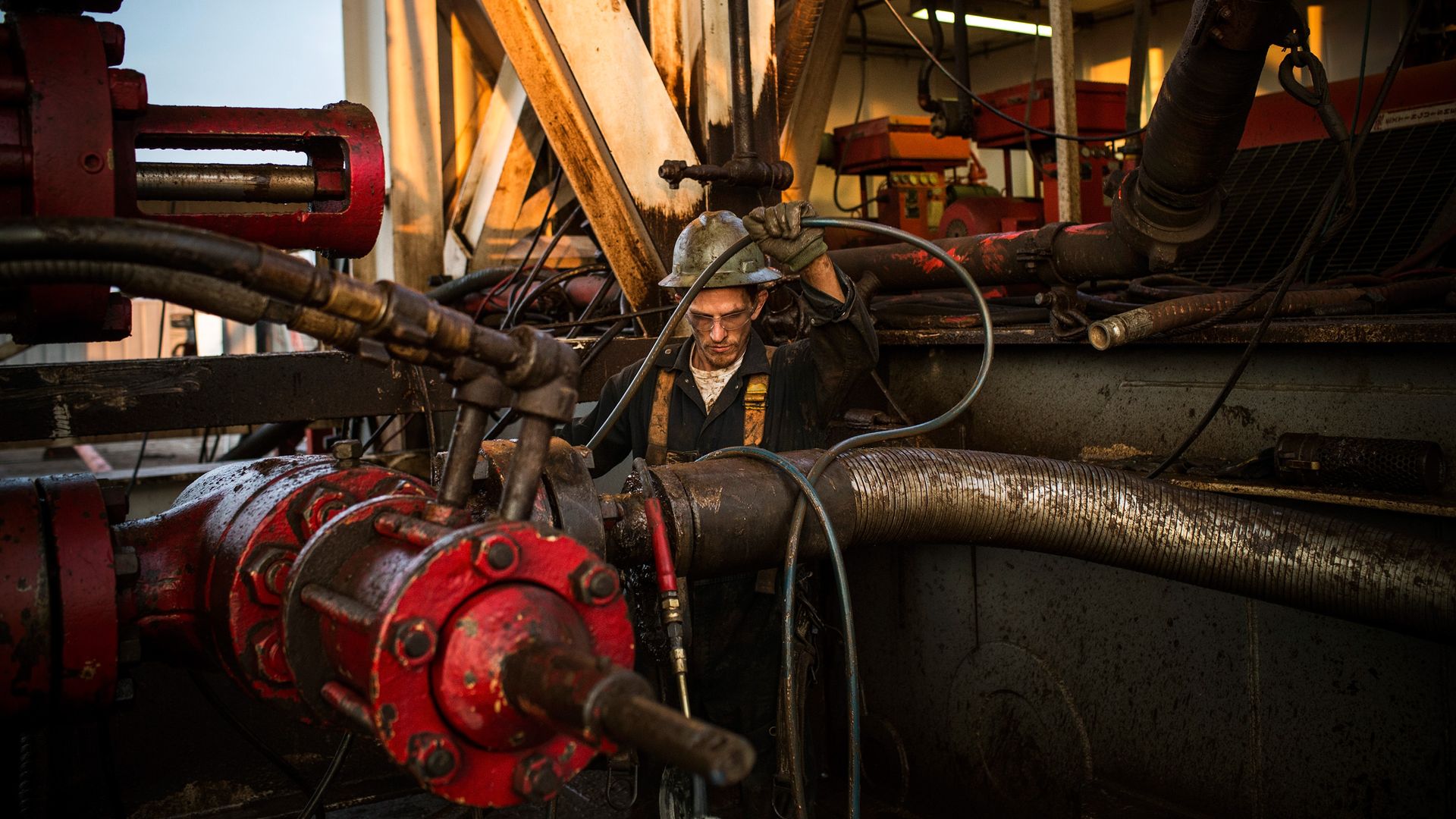Mar 11, 2020 - Energy & Climate
White House weighs shale aid options as oil prices collapse
Add Axios as your preferred source to
see more of our stories on Google.

An oil rig drilling into the Bakken shale formation in North Dakota. Photo: Andrew Burton/Getty Images
